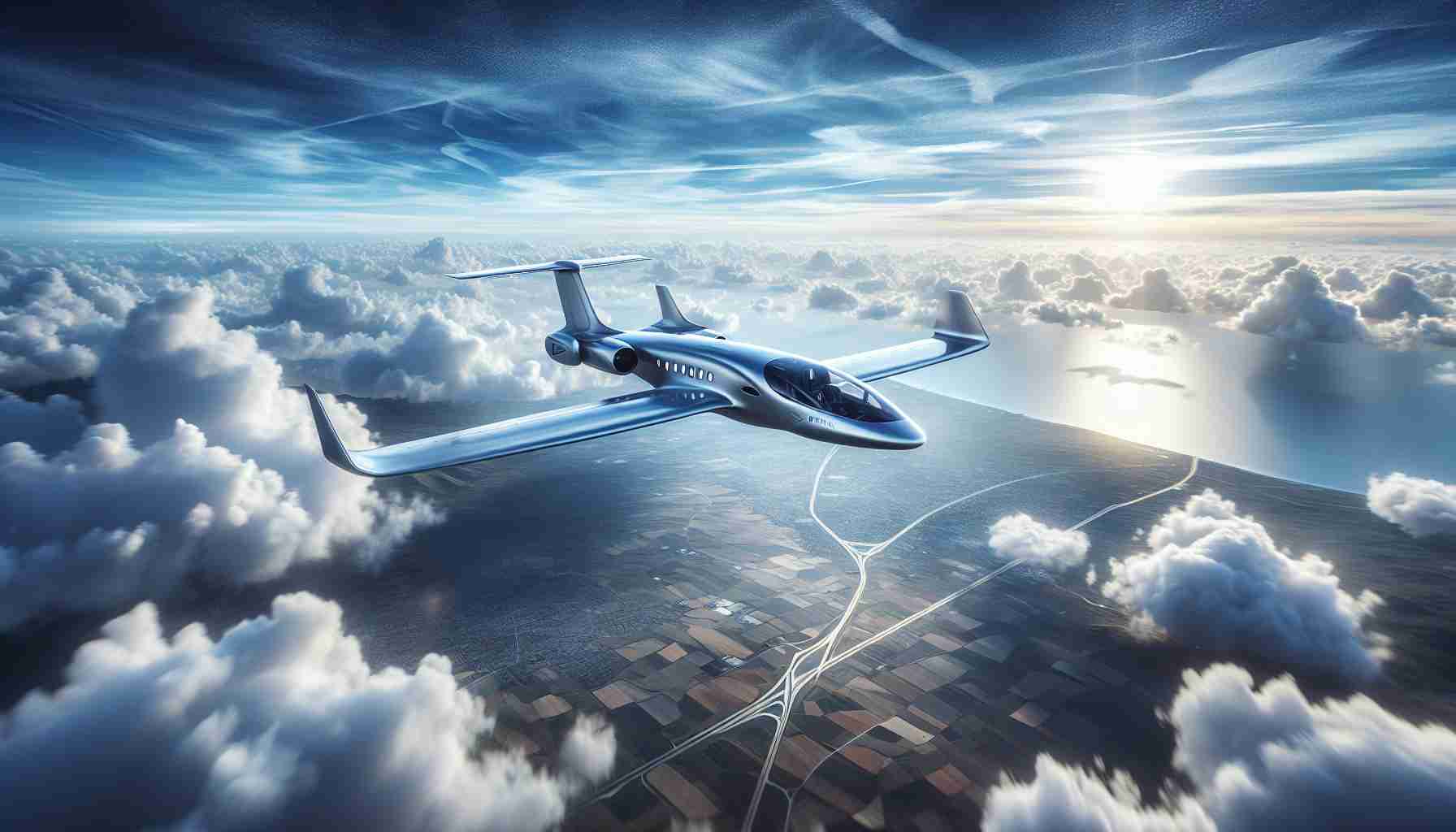In a monumental step for sustainable aviation, Beta Technologies has successfully launched its inaugural Alia electric aircraft from their South Burlington production line. The company’s breakthrough achievement includes obtaining certification from the Federal Aviation Administration (FAA), marking a pivotal moment in the journey towards commercial electric flight.
Game-Changing Flight
On November 13, Beta’s founder and CEO, Kyle Clark, personally piloted this groundbreaking aircraft, reaching an altitude of 7,000 feet during a near-hour-long flight. The Alia CTOL CX300 displayed its capabilities, performing traditional takeoffs and landings, unlike its VTOL counterpart that operates vertically. This maiden flight provided invaluable insights into the production process, enhancing the company’s manufacturing proficiency.
Expanding Horizons
The future is bustling with potential as Beta Technologies inaugurates its vast 200,000-square-foot production facility at the Patrick Leahy Burlington International Airport. Situated on an expansive 40-acre site, the state-of-the-art factory anticipates manufacturing 300 aircraft annually by 2027, establishing itself as a leader in electric aviation production.
Beta’s financial success is equally impressive, with over $1 billion in equity raised to date and a recent $318 million boost, fueling its innovative ambitions. The company, employing approximately 650 people, stands out in Vermont’s start-up landscape.
Path to Global Deployment
Continuing rigorous testing, Beta plans to fly the Alia aircraft extensively, venturing beyond Burlington and Plattsburgh. As production scales, these cutting-edge aircraft are poised to fulfill contracts with industry giants like Air New Zealand, UPS, and even the U.S. military, signaling the dawn of electric air travel across the globe.
The Electrifying Future of Aviation: Could Electric Planes Revolutionize Travel?
In an era where sustainability is at the forefront of technological advancement, Beta Technologies’ successful launch of the Alia electric aircraft marks the dawn of a new age in aviation. However, beyond the headlines of the Alia’s inaugural flight, deeper questions and significant repercussions linger regarding the widespread adoption of electric flight and its impact on modern technology and society.
The Environmental Edge
While the maiden flight of the Alia electric aircraft is a monumental achievement, the broader impact on the environment is noteworthy. Electric planes promise to significantly reduce carbon emissions, which are a major concern with traditional jet fuel-powered aircraft. By slashing emissions, electric aircraft hold the potential to drastically reduce the aviation industry’s carbon footprint. This transition could be pivotal in addressing global climate change challenges, particularly given that aviation is responsible for around 2-3% of global CO2 emissions.
Challenges on the Horizon
However, the journey towards widespread electric aviation is not without its challenges. The current technology for electric aircraft, including battery capacity and weight, poses significant hurdles. Unlike electric cars, aircraft require high energy density batteries that are both lightweight and efficient, which current technology is still working to perfect.
Moreover, the infrastructure for supporting electric aviation, such as fast-charging stations at airports, needs substantial development. Can the current pace of technological advancement and infrastructure upgrades keep up with the ambitious production goals? This question remains open-ended but is crucial for the feasibly rapid adoption of electric aviation.
Economic Implications
The economic landscape could also see shifts as electric aviation becomes more prevalent. Fuel costs, a significant part of operating expenses for airlines, could significantly decrease with electric planes, potentially lowering ticket prices and making air travel more accessible. Furthermore, new jobs and industries may emerge centered around electric aviation manufacturing, maintenance, and related technologies.
Safety Concerns and Regulations
Safety and regulatory measures are critical areas needing attention. The development of rigorous safety standards and protocols for electric aircraft is paramount. Will electric planes meet the safety benchmarks set by conventional aircraft, and how will regulatory bodies navigate these uncharted waters?
Future of Flight or Just a Fad?
As with any emerging technology, there’s a mix of optimism and skepticism surrounding electric aircraft. Is this truly the future of aviation, or are we witnessing a technological trend that may not fully take flight? Only time will answer these questions, but the potential for transformation is certainly on the horizon.
For more information on sustainable aviation and related technological advancements, visit Beta Technologies and Federal Aviation Administration.
As humanity strides towards an electrified future, the promise of electric flight offers both excitement and uncertainty. What is undisputed is that with each innovation comes the power to redefine our world, challenging us to navigate the complexities and harness the potential of these groundbreaking technologies.







